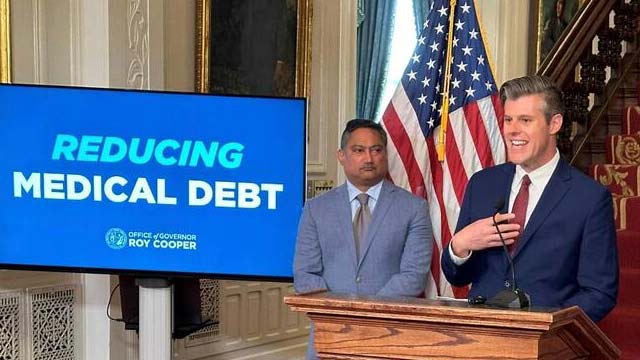
North Carolina's state government, led by Governor Roy Cooper, has introduced a bold initiative aimed at alleviating substantial medical debt burdens among low- and middle-income residents. The plan encourages approximately 100 hospitals, benefiting from recent federal Medicaid reimbursements, to erase unpaid medical bills dating back to 2014 for current Medicaid enrollees and low-income non-enrollees. Participating hospitals must also offer significant bill discounts, enroll eligible patients in charity care programs, refrain from debt sales to collectors, and cap interest rates on medical debt. Governor Cooper estimates the initiative could benefit up to 2 million residents, potentially erasing $4 billion in unrecoverable medical debt, and providing a sustainable solution beyond short-term relief efforts.
This initiative builds upon North Carolina's previous efforts under the Healthcare Access and Stabilization Program, which expanded Medicaid coverage but did not fully address existing medical debt challenges. Crucially, the proposal does not require new state legislation or additional funds but hinges on approval from the U.S. Centers for Medicare and Medicaid Services. Hospital participation is essential, with financial incentives potentially reaching $6.5 billion for participants compared to $3.2 billion for non-participants. While the North Carolina Healthcare Association is reviewing the proposal, patient advocacy groups have praised its potential to reduce financial stress and improve residents' overall health outcomes.
Scheduled for implementation in 2025 and 2026, this initiative underscores North Carolina's commitment to tackling long-standing medical debt issues and promoting economic growth through enhanced financial health for its citizens.











